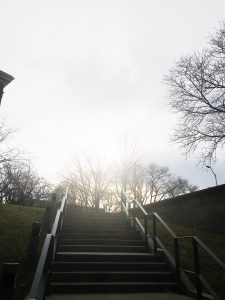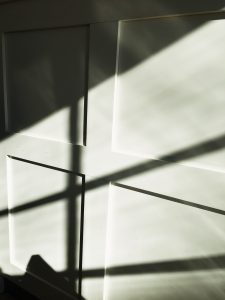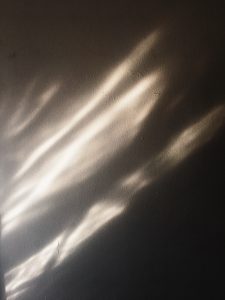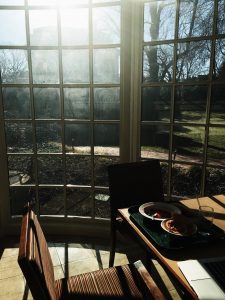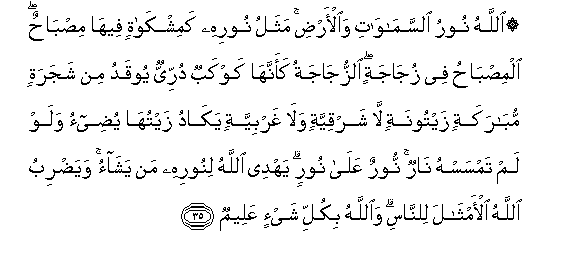My prayer beads give me a quiet comfort. The green tassel and the tainted wood still feel foreign to me—nearly three years later—but I love them anyway. They go wherever I go, though I never use them for their intended purpose: to recite the name of God. Instead, I remember the circumstance under which I received these beads. I remember that morning I slipped on a pair of tight jeans (I could not shake off the scornful look my mother gave me every time I wore them). I remember convincing myself that whatever God she was praying to was a graceful one—one who did not shame me for something so petty as a pair of jeans that pinpointed where my legs end and my cellulite begins.
I moved through Paris that day with the self-consciousness of a tourist. I wanted my last day to be a quiet one: a visit to the mosque, and then a walk back to my rented room along the Seine.
As I approached the entry to the mosque, a hijabi woman asked me, “Vous-etez muselmanne?” I stuttered, as if saying, “Yes” was a lie. She stared at me, unconvinced, before letting me through.
I walk in. I take a few pictures. I move slowly, but not as slowly as I want. I decide to buy a souvenir—a set of prayer beads makes sense.
I walk around, looking for someone to buy them from. Before entering a courtyard, I notice an open door to my right. I haphazardly walk in. Upon seeing a tall, looming man in all-white garb—signaling the depth of his observance—I suddenly become self-conscious of the jeans I chose that day. I ask if he has any prayer beads to sell me. He tells me he does. I watch as he searches his drawers, eventually looking up at me apologetically and saying something in Arabic along the lines of “I’m sorry, we’re all sold out.”
I assume my blank stare made him think I don’t understand.
“Do you understand Arabic?” he asked—in English.
“Yes—yes, I do.”
“We are all sold out,” his tone is so remorseful that I am overcome with grief at the trouble I caused.
He searches once more, and then looks up at me and says:
“Here.”
In his hand are his own prayer beads.
I stared. I am shocked. Still, I take the beads and place them gently in my tote bag. On my walk back through Paris, I feel for them regularly to make sure they are still there, because somewhere inside of me I cannot believe a man so devout can be that good to a girl as wrong as me.
That man will never know how much the immediacy of his generosity meant to me. Prayer beads are usually used to recite the name of God, but I only hold mine to remember that faith extends beyond lines I have not yet learned to draw—or erase.
I wanted to connect this brief memoir piece to our reading of the Mevlidi Sherif; specifically, “The Heavenly Journey of Allah’s Apostle.” Even though this was a Turkish poem, the supplication evidenced in the words and imagery tremendously mirrored my own desire to be closer to Allah. Phrases such as “Who bears love’s emblem in his body/ Shall know, some day, the joy of lovers’ meeting” and “Who presses on, in death’s despite, unshrinking,/Shall see his love, and stand, those features drinking” resonated with me because of their purely loving need to reach Allah. I feel that my own journey to reach Allah’s love began with this experience at the Grand Mosque of Paris. The love that man gave me taught me more about Islam than any traditionally religious experience I’ve ever had. In the poem, the prophet’s own journey is concluded with the conviction to continue his journey, as love has shown him that this is his main imperative. I similarly realized that love is my main imperative when that man showed me what it looks like to love as a Muslim, and with that in mind, I began a journey to find my own Islam.
The prophets’ journey reminded me of this experience I had when I was nineteen and traveling through Europe. I am taking this class because I wanted to reconnect with my faith on my own terms; I’ve been struggling to parse what is “Islamic” and what is “not Islamic” based on how I was raised and socialized. That brief encounter in Paris had a profound effect on me because I was acutely aware that we both came from two different worlds–he, an immigrant to France, and me, an immigrant living in the United States and now a tourist in another country that is also not her own. I felt that difference, but it could not overpower the profundity of our religious connection. He was clearly more devout than me, a fact that I felt incredibly self-conscious about, but he held space for me in that moment by giving me his own prayer beads–an act that showed me the unity we have as Muslims regardless of our religious differences. It was the beginning of my realization that the ways in which Islam is practiced are infinite, and that despite this, we can still love each other’s ways of knowing Allah.
The Mevlidi Sherif resonated with me on that transcultural level too: despite being from another culture, and being rooted in a religious practice that I am unfamiliar with, I adopted the sentiments in those words as my own, and that language is now part of my approach to my love for Allah, just as the immediate generosity of that man is, too.


